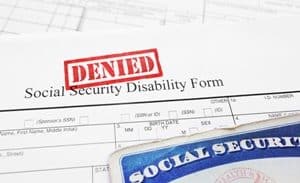In some situations, you may be able to receive veterans’ disability benefits while you are in a federal, state, or local prison or jail. However, whether you can continue to receive benefits and the amount of benefits that you may be eligible to receive depends on why you are incarcerated.
What You Need to Know if You are Facing Jail Time
According to the United States Department of Veterans Affairs:
- Your veterans’ disability benefits will only be reduced if you are convicted of a felony and in jail or prison for 60 days or longer.
- If you are convicted of a felony and imprisoned for 60 days or longer, your veterans’ disability benefits will be reduced. If you have a disability rating of 20% or more, you will be reduced to the 10% disability rating. If you have a disability rating of 10%, your benefits will be reduced by half.
- Some benefits may be apportioned to your spouse, your children, or your dependents during this time depending on their need and the other details of your situation.
It is important to remember that there should be no change in your benefits if you are:
- Convicted of a misdemeanor
- Sentenced to fewer than 60 days in prison
- Sentenced to a work release program, a residential re-entry center, or community control
It is also important to be prepared for the end of your prison term.
What Happens When You Are Released?
If you are released from prison, your VA disability benefits can be restored beginning on the first day of your release as long as the Department of Veterans Affairs (VA) is notified of your release within a year. You may receive full veterans’ disability benefits even if you are in a work release program, living in a halfway house, or on parole. The amount of your benefits will be based on the severity of your disability at the time you are released.
Are you getting the VA disability benefits you deserve? Contact an experienced and attentive disability attorney at Morgan & Weisbrod today to make sure you are getting the benefits you have earned. Our lawyers can help you understand your rights as well as which steps you can take immediately to protect your rights.

According to the Internal Revenue Service (IRS), disability benefits received from the Department of Veterans Affairs (VA) should not be included with your gross income on your federal tax returns. These benefits are specifically excluded by federal law. Additionally, Texas does not currently have a state income tax so your disability benefits will not be subject to state income tax if you reside in Texas.
Other Veterans’ Disability Benefits Are Also Excluded From Your General Income
Your monthly veterans’ disability benefits are not the only veterans’ disability benefits that are excluded from your general income for tax purposes. Other federal veterans’ benefits that are not taxable include:
- Grants to make your home wheelchair accessible
- Grants for vehicles that need to be modified because of your disability
- The proceeds of a veterans’ endowment policy
- Veterans’ dependent care assistance program benefits
- Survivor’s death gratuity payments
- Work therapy program payments made or compensated by the Department of Veterans Affairs
- Sustenance allowances
- Education and training compensation
Any other disability benefits you receive through programs that are not run by the Department of Veterans Affairs may be subject to different tax rules.
Pay What You Owe
As a veteran of the United States armed services, you deserve to get all of the benefits to which you are legally entitled. This includes the full amount of disability benefits for which you qualify. You should not subject yourself to paying more in taxes than you legally owe unless you wish to do so voluntarily.
If you have any questions about state or federal tax liability for your veterans’ disability benefits, it is important to speak to your accountant directly. Similarly, if you have any questions about your eligibility for veterans’ disability benefits, you should speak to an experienced Texas disability lawyer at Morgan & Weisbrod. Please contact us via this website or by phone to schedule a meeting and to make sure you get the fair benefits you deserve.

 Generally, there are four different levels of appeal when it comes to your Social Security disability claim. You may have the right to appeal your Social Security disability claim in a:
Generally, there are four different levels of appeal when it comes to your Social Security disability claim. You may have the right to appeal your Social Security disability claim in a:
- Request for consideration
- Administrative law judge hearing
- Appeals Council proceeding
- Federal Court review
Although this means, in theory, that you have four different opportunities to appeal your case, it does not necessarily mean that you can or should appeal at each level. In most cases, claimants who have their initial appeal denied will appeal twice: they will file a request for consideration (the Social Security Administration (SSA) only grants about five percent of these requests), and they will go to an administrative law judge hearing.
The Appeals Council selects disability claim cases to review—and often it chooses cases in which an interesting issue is raised or in which substantial evidence has come to light. Only a handful of cases find success at this level.
After the Appeals Council, you may file a lawsuit against the SSA in federal court. Although this option gives you a better chance at success than the Appeals Council, it can be a long and possibly expensive process.
Make the Social Security Disability Appeals Decisions That Benefit You
Your aim should be to appeal as few times as possible because your ultimate goal is to get the fair Social Security disability benefits you deserve quickly. Thus, it is important to put in as much work as you can to get your application approved the first time or at the next level of appeal so that you can avoid the time, the expense, and the frustration of further appeals.
To find out more about the appeals that you should file and about how to protect your rights, please contact a board certified disability lawyer today for more information. We will help you make the right decisions about your claim.

 Yes, you may be eligible for veterans’ disability benefits if you were in the National Guard and you were hurt during active duty. A member of the National Guard is considered to be on active duty if the member is serving:
Yes, you may be eligible for veterans’ disability benefits if you were in the National Guard and you were hurt during active duty. A member of the National Guard is considered to be on active duty if the member is serving:
- During a national emergency
- During an international conflict
- By participating in basic combat training
- By participating in advanced individual training
- By participating in annual training
- By participating in active duty training
- By participating in weekend drills
Recent examples of National Guard members being called into active duty include the conflicts in Iraq and Afghanistan and Hurricane Katrina.
You Must Qualify for Benefits
It is important to note that although those in the National Guard who are injured during active duty can receive veterans’ disability benefits, each individual case is different and each case must also meet the requirements of any other veterans’ disability claim. For example, your claim must prove that your condition was caused by or exacerbated by your active duty and you must not have been dishonorably discharged.
Are National Guard Members Treated Fairly?
According to recent data collected through the Freedom of Information Act, it is significantly harder for National Guard members and reservists to receive veterans’ disability benefits than it is for other service members. The data shows that reservists who served in Iraq and Afghanistan after 9/11 were four times more likely to be denied benefits than active duty military members.
Out of approximately 70,000 military men and women who have been denied VA disability payments, 60 percent of denials were issued to National Guard members and reservists, even though this segment makes up only 40 percent of the veteran population.
Talk to a Disability Lawyer About Your Rights
In order to know if you should apply for veterans’ disability benefits, please contact a Texas disability benefits attorney about the details of your case and your history in the National Guard. Morgan & Weisbrod offers all veterans a free, private meeting in which you can discuss your disability and your plan for the future. Call today for more information.

 Veterans’ disability benefits are generally only available to veterans who were discharged under other than dishonorable conditions. In other words, you may be eligible for veterans’ disability benefits if you received an honorable discharge or a general discharge from the military, but you are not eligible if you received a dishonorable discharge.
Veterans’ disability benefits are generally only available to veterans who were discharged under other than dishonorable conditions. In other words, you may be eligible for veterans’ disability benefits if you received an honorable discharge or a general discharge from the military, but you are not eligible if you received a dishonorable discharge.
Dishonorable Discharges May be Appealed
A dishonorable discharge is only handed down to those who have been court-martialed for a serious offense, such as desertion or assault. It is possible to appeal your dishonorable discharge and perhaps get it downgraded to a different type of administrative discharge—even a few years after your military service ends. If you believe that your dishonorable discharge is incorrect, you should take action to protect your rights and any veterans’ benefits that may be rightfully available to you.
You Don’t Need an Honorable Discharge to Get Veterans’ Disability Benefits
You may be eligible for veterans’ disability benefits if you received a bad conduct discharge (BCD) or an other-than-honorable discharge (OTH). In these two cases, you may wish to speak to a veterans’ disability attorney about your case. While some former service members have successfully fought for VA disability benefits despite an OTH discharge, others have been denied. Your case may depend on the reason for your discharge and whether it was related to your physical and mental health issues at the time.
Don’t Delay Getting Help With a Veterans’ Disability Claim
Veterans’ disability benefits can have a significant impact on your future. If you think you may qualify for such benefits, or if you have questions about your eligibility for veterans’ disability benefits, we encourage you to contact an experienced disability lawyer as soon as possible to discuss your case and to make sure your rights are protected. Please call us today or reach out to us via this website for additional information.

Yes, you can receive both Social Security disability benefits and veterans’ disability benefits at the same time assuming that you qualify for both types of benefits. Income, assets, and financial need are irrelevant to your claims for both Social Security disability and veterans’ disability benefits. Instead, Social Security disability insurance benefits are based on your work history and veterans’ disability compensation is based on your military service.
Social Security Disability Eligibility
In order to receive Social Security disability benefits, you must:
- Have a medical condition that significantly impacts your ability to work and that keeps you from making enough money to be engaged in substantial gainful activity.
- The condition must have already lasted—or be expected to last—for one year or more or to result in your death.
Additionally, you must go through the Social Security disability application process and have your application approved.
Veterans’ Disability Eligibility
The veterans’ disability program has different eligibility requirements than the Social Security disability program. In order to receive veterans’ disability, you will need to prove that:
- You are an active service member or a veteran who was not dishonorably discharged.
- You suffered a medical condition that is connected to your service.
You must qualify for each program individually in order to receive both types of benefits. You may start to receive benefits from each program at different times. Likewise, you may have one type of benefit denied while the other type of benefit is approved.
Understanding disability benefits can be difficult—and making certain you are receiving all of the disability payments you and your family deserve is important. Speaking with a Texas disability benefits attorney can help you understand what benefits you may be eligible for, and whether you should apply for benefits from more than one program. Call the disability lawyers at Morgan & Weisbrod today to schedule a free, private appointment today to learn more about your rights.

Yes, you can receive Social Security disability benefits if you have been diagnosed with a terminal illness and you meet the requirements of the Social Security disability program. In fact, your application for benefits may be expedited through the Social Security Administration’s terminal illness program known as TERI.
Are You Eligible for TERI?
According to the Social Security Administration, you may be eligible for TERI if you are diagnosed with “a medical condition that is untreatable and expected to result in death.” Some conditions, such as amyotrophic lateral sclerosis (ALS), may automatically classify your application as a TERI case. Other conditions that are often added to the TERI program include some forms of cancer, chronic heart failure, fatal genetic issues in newborns, and those on life-sustaining devices such as a ventilator.
You may claim that you have such a condition in your Social Security disability application, or the Disability Determination Services (DDS) may identify your application as a TERI case based on the content of your application.
DDS is not required to tell you that your case is being considered as a TERI case and is specifically instructed by the Social Security Administration not to use the word terminal in anything that is made available to you.
Who Makes Sure TERI Cases Are Expedited?
That is the responsibility of DDS management and the Social Security Administration’s field offices. DDS management is supposed to follow up on a TERI case every 10 days until an eligibility determination is made. If a determination is not made within 30 days, the field office should become involved.
If you are suffering from a terminal illness and you qualify for Social Security disability, you have the right to have your application expedited and to start receiving benefits as soon as possible. An experienced Social Security disability lawyer can help you get the benefits you deserve. Please contact us today to learn more.

The short answer to your question is that you should apply for veterans’ disability benefits as soon as possible so that you can begin getting the benefits you deserve.
However, before you apply for veterans’ disability benefits you need to know a few things, including whether you have suffered a service-related health condition, whether you are eligible for benefits, and how to prepare your application so that it can be approved.
Are You Eligible?
You are eligible for veterans’ disability benefits if you:
- Served on active duty, were on active duty training, or were on inactive duty training.
- Discharged for reasons other than dishonorable conditions.
- Suffered at least a 10% disability because of something that occurred on active duty or in training.
Special rules do apply if you were hurt on inactive duty training, however.
Be Prepared Before You Apply
Before you submit your application, it is important to have all of the appropriate medical evidence from your health care providers and to know how to complete your application form. You need evidence to prove two things:
- First, you need evidence to prove that you have a current physical or mental disability.
- Second, you need evidence to prove the connection between your disability and your service. Under certain circumstances, the connection may be presumed based on where and when you served.
If you follow all of the directions and provide all of the necessary documentation, you may be able to have your benefit request approved without going through the appeals process.
Don’t Wait to Take Action
You can begin protecting your rights today. Browse our free videos and articles to learn more about veterans’ disability benefits and contact an experienced veterans’ disability lawyer directly to discuss your claim and how to get started with your application. In our first confidential meeting, we will review your potential claim with you, we will answer your questions, and we will talk about the steps you can take next. Call us or reach out to us through this website to learn more at any time.

The short answer to this question is simple: as soon as you possibly can.
Here’s the slightly longer answer:
Due to the extremely large backlog of disability claims and the complexity of the claims process, it is best to get your application for benefits in just as soon as you know you need them. Two out of three claims are denied during the initial screening stage, and fighting a denied claim can take months or even years. The sad truth is that you might be waiting a while to get the support you are owed, so the sooner you start, the sooner your benefits will arrive.
When to Get Started
You should begin working on your Social Security disability claim as soon as you:
- Know that you have a serious disability that will affect you for more than a year or that is fatal.
- Know that this disability will affect your ability to work and earn a living.
- Are familiar with the claims process and know how to avoid the common mistakes of filing a claim.
While there is a six month waiting period before Social Security disability benefits begin, you do not need to wait six months to apply for benefits.
How to Get Started
Before you file a Social Security disability application, it is important to take the time to file the application correctly. This may include learning about the process in our FREE book Social Security Disability: What You Need to Know, collecting medical evidence, and talking directly with an experienced Social Security disability lawyer. Our law firm has more board certified Social Security disability lawyers than any law firm in the United States. Yet, hiring us won’t cost you any more than hiring a non-attorney advocate. Call us today and schedule a meeting to learn more about your rights and about how to get the Social Security disability benefits you deserve.


Often, a disability impacts more than just your ability to work. It could also impact your ability to manage your money or to pay your bills on time, for example. In these cases, the Social Security Administration allows Social Security disability representatives to have a representative payee appointed.
What Is a Representative Payee?
A representative payee will receive a Social Security disability recipient’s monthly benefits and use that money for the benefit of the Social Security disability recipient. Specifically, the representative payee will use the money from the disability payments to pay for the Social Security disability recipient’s rent, mortgage, utilities, food, clothing, personal care and home care items, medical expenses, and to cover any other necessary expenses. Extra money can be used on entertainment, education, or home improvements for the person with the disability or can go into a savings account for the benefit of the person with a disability. A payee should never use the disability payments for something other than the benefit of the Social Security recipient.
Who Is the Representative Payee?
A payee is usually a family member, partner, close friend, or loved one. However, payees are sometimes a nursing home, an adult care facility, or another institution.
If you think your loved one needs a representative payee and you are willing to serve in that role, you should:
- Speak with your loved one about his needs and whether he would like assistance with his finances and care.
- Call the Social Security Administration or stop by a local office and let them know about the situation.
- Collect a note from your loved one’s doctor as well as important personal information, such as a Social Security number.
- Let the Social Security Administration know if any changes take place that would require a change in payments, such as a deteriorating health condition, a new source of income or employment, or the death of your loved one.
Do you have questions about acquiring Social Security disability benefits or selecting a representative payee? Contact our experienced Social Security disability lawyers today to schedule an initial consultation and to get the advice you need to move forward.















